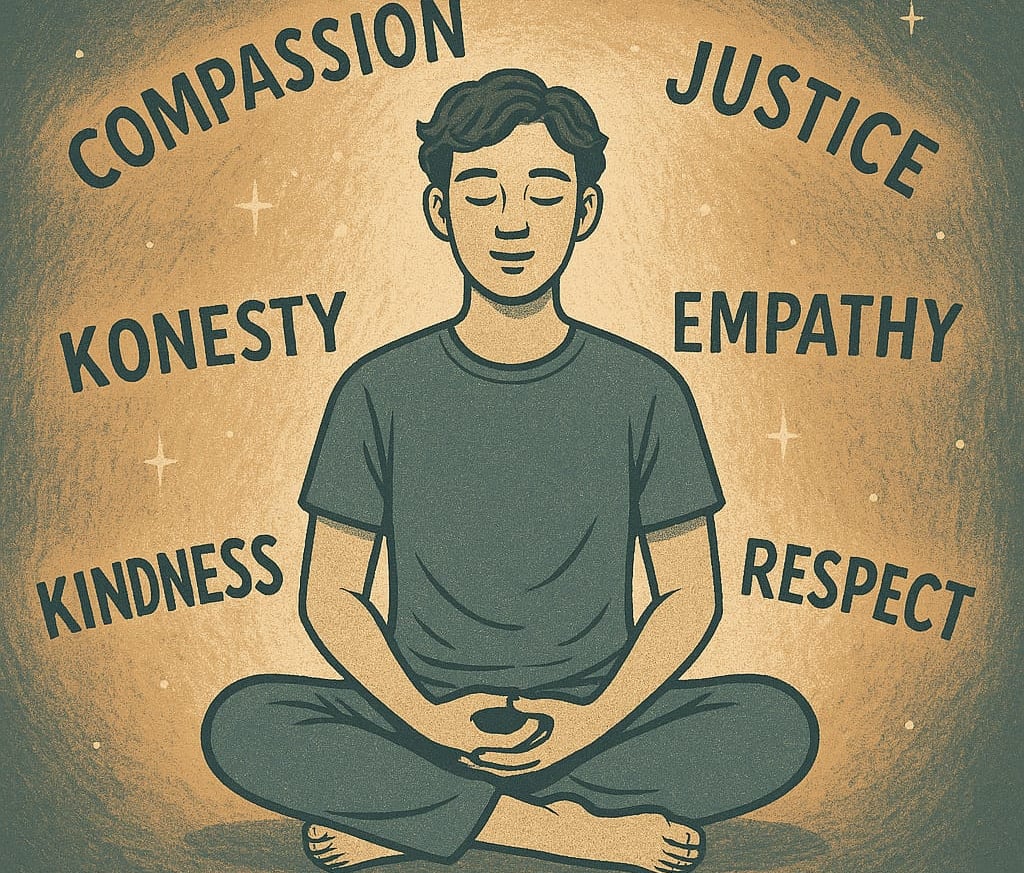"The Power of Mortality: How Reflection Makes Life More Meaningful"
Discover how reflecting on our shared mortality can unlock deeper meaning, emotional resilience, and authentic purpose in daily life. This blog explores timeless philosophical insights and modern psychological tools that help you embrace the fragility of life—not with fear, but with clarity. Learn how ancient wisdom can empower you to live more intentionally, love more fully, and fear less.
SELF-EVOLUTION


The Law of Death Denial
The topic of death often finds itself at the center of heated discussions, yet many of us prefer to sidestep the reality of its inevitability. Instead of cherishing this truth, we tend to push it away. However, embracing the idea of mortality is crucial—it helps us realize our purpose and gives clarity to our lives. Training ourselves to confront this ultimate reality not only aids in dealing with the severe separations life throws our way but also cultivates a profound sense of connection with others. Recognizing the shared fate we all have enhances our appreciation for life itself.
Consider the poignant story of Flannery O’Connor, who grew up in Savannah, Georgia, in the 1930s. From an early age, she shared a remarkable bond with her father, rooted not just in their striking physical similarities—those piercing eyes and matching expressions—but in a profound, unspoken understanding. Whether inventing games or sharing silent moments, their spirits seemed perfectly in sync.
In stark contrast, she felt a disconnect with her mother, Regina, who came from a more socially elevated background and aspired to shape Mary into a vision of societal idealism. The pressure to conform to her mother's meticulously crafted persona felt stifling. In a twist of rebellion, Mary began creating caricatures of her family, capturing their quirks in both a humorous and biting light. While her relatives were taken aback, her father delighted in her creativity, showcasing her work proudly to guests. His admiration ignited a flame of confidence in Mary, affirming her uniqueness.
Yet, this idyllic connection began to fray as Mary's father’s health deteriorated. The signs were subtle at first—fleeting rashes, fatigue—but soon spiraled into something far more menacing. As their financial circumstances shifted and they moved to a new home in Milledgeville, Mary watched helplessly as her beloved father grew weaker, battling severe pain until he succumbed to lupus erythematosus on February 1, 1941, at just 45 years old.
The shattering blow of his death rendered Mary speechless, thrusting her into a deep contemplation of mortality. She felt as though a piece of her heart had been wrenched away, leaving a profound sense of loss that reverberated within her. This grief awakened something within her—a dramatic realization that life is fleeting and precious, akin to “a bullet in the side.”
Mary, who had always been devoutly religious, grappled with her father’s passing. She pondered the mysteries of life and the divine, seeking meaning in what felt like senseless tragedy. Her grief transformed her, igniting a fervent dedication to her writing that had not existed before. She began to craft longer, more ambitious stories, impressing her college professors with her talent and thoughtful insights.
In the wake of her father's death, Mary embraced her difference, channeling her pain into creativity, affirming that perhaps her father had indeed foreseen a remarkable destiny for her. A new chapter of her life had begun, one rich with the complexities of existence, the weight of loss, and the beauty of storytelling, as she determinedly forged her path in a world that often grapples with the very essence of life and death.
